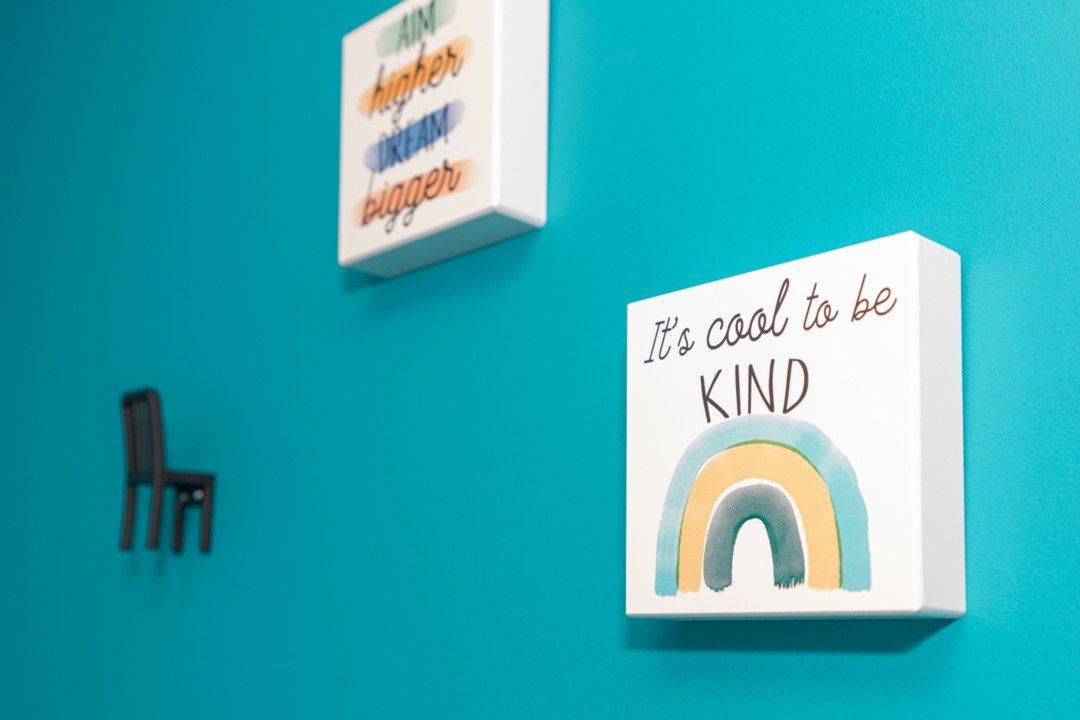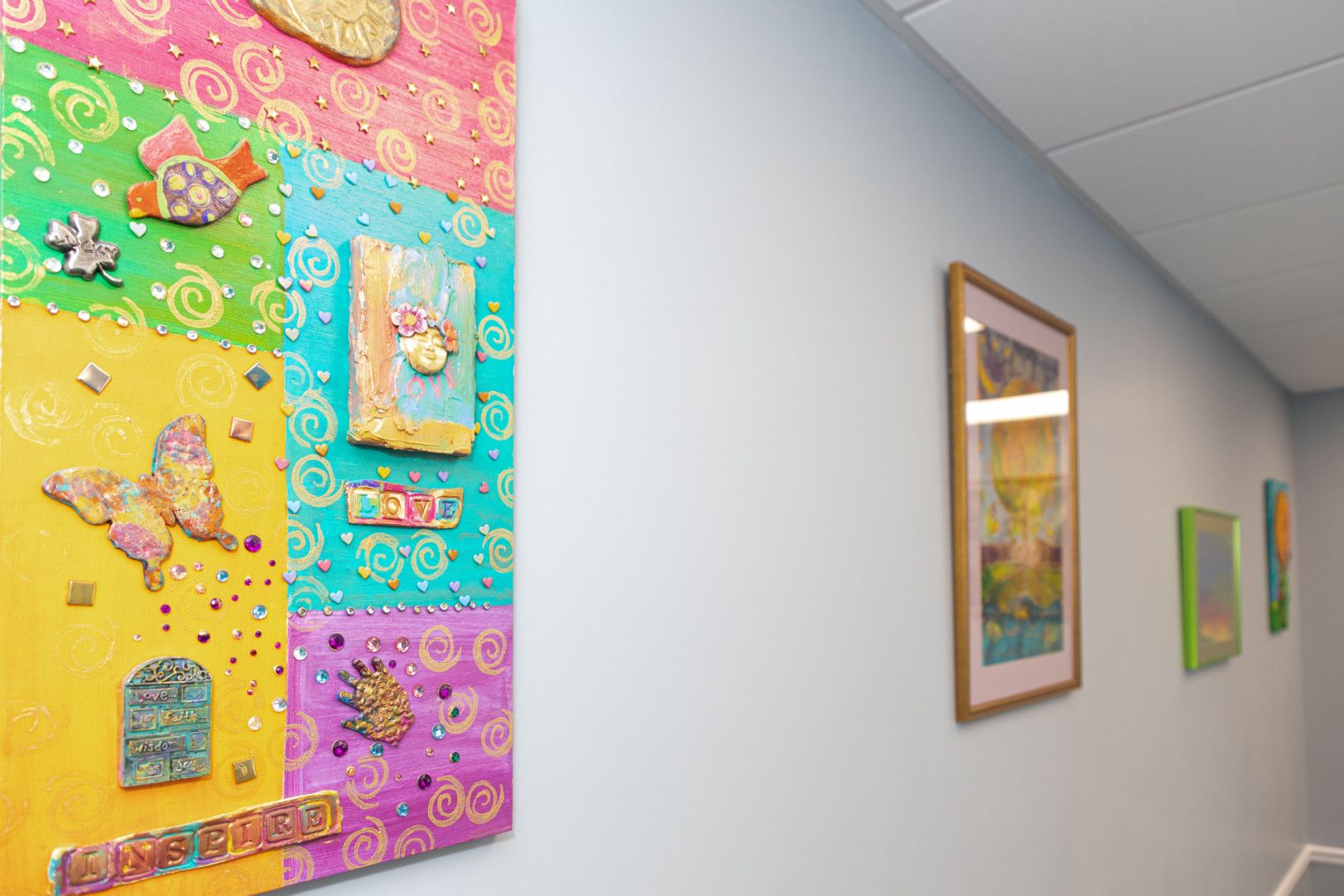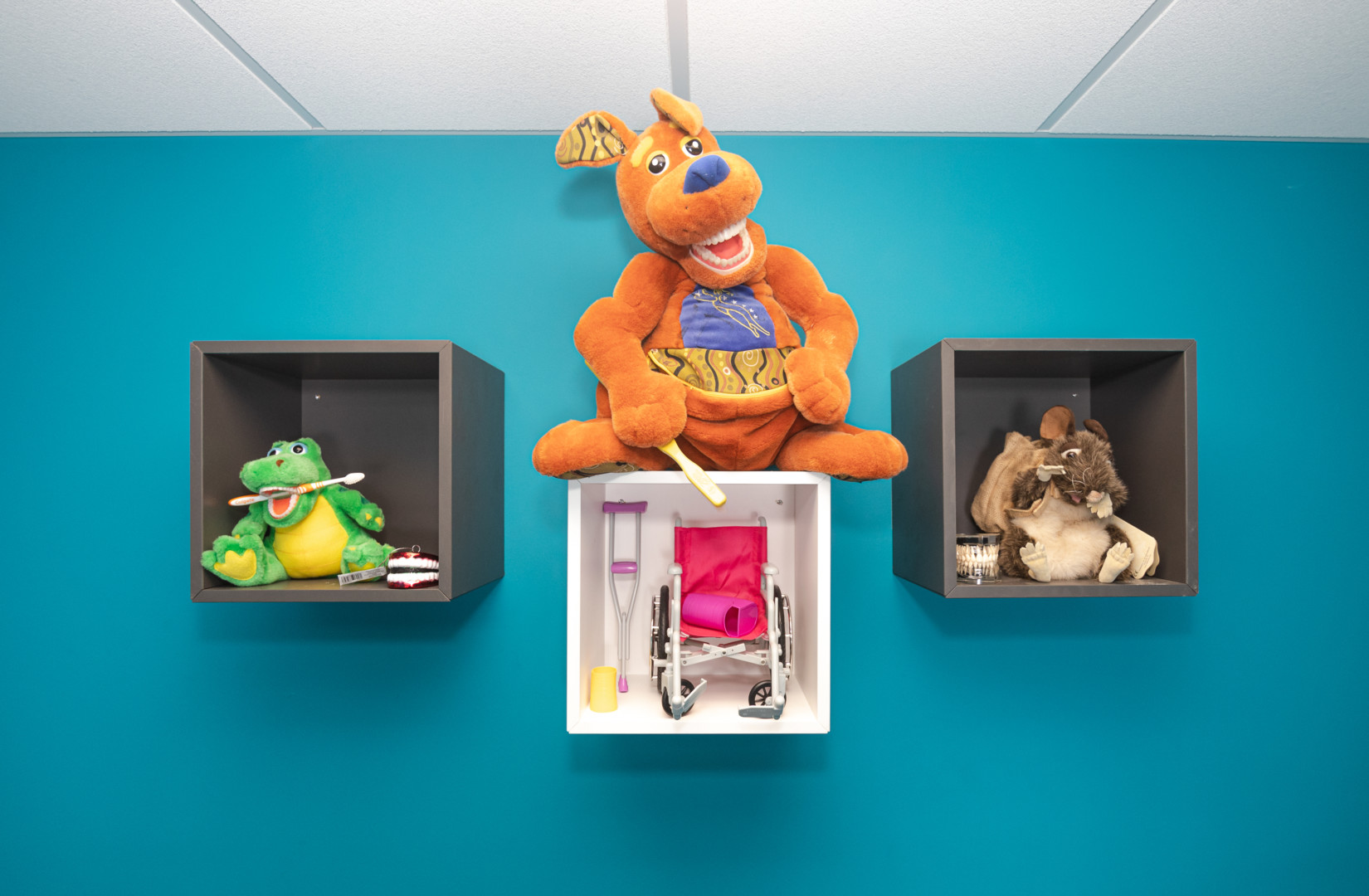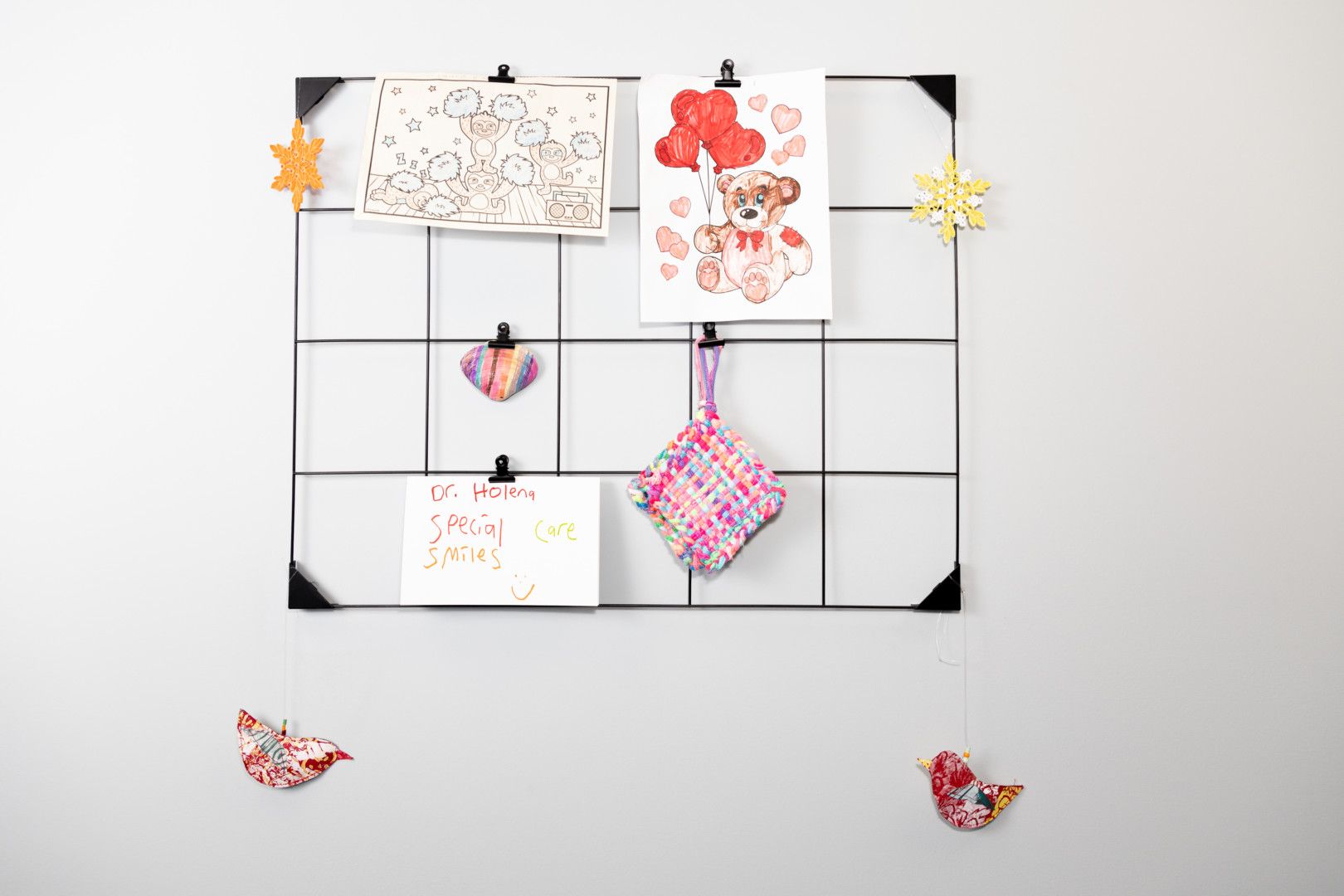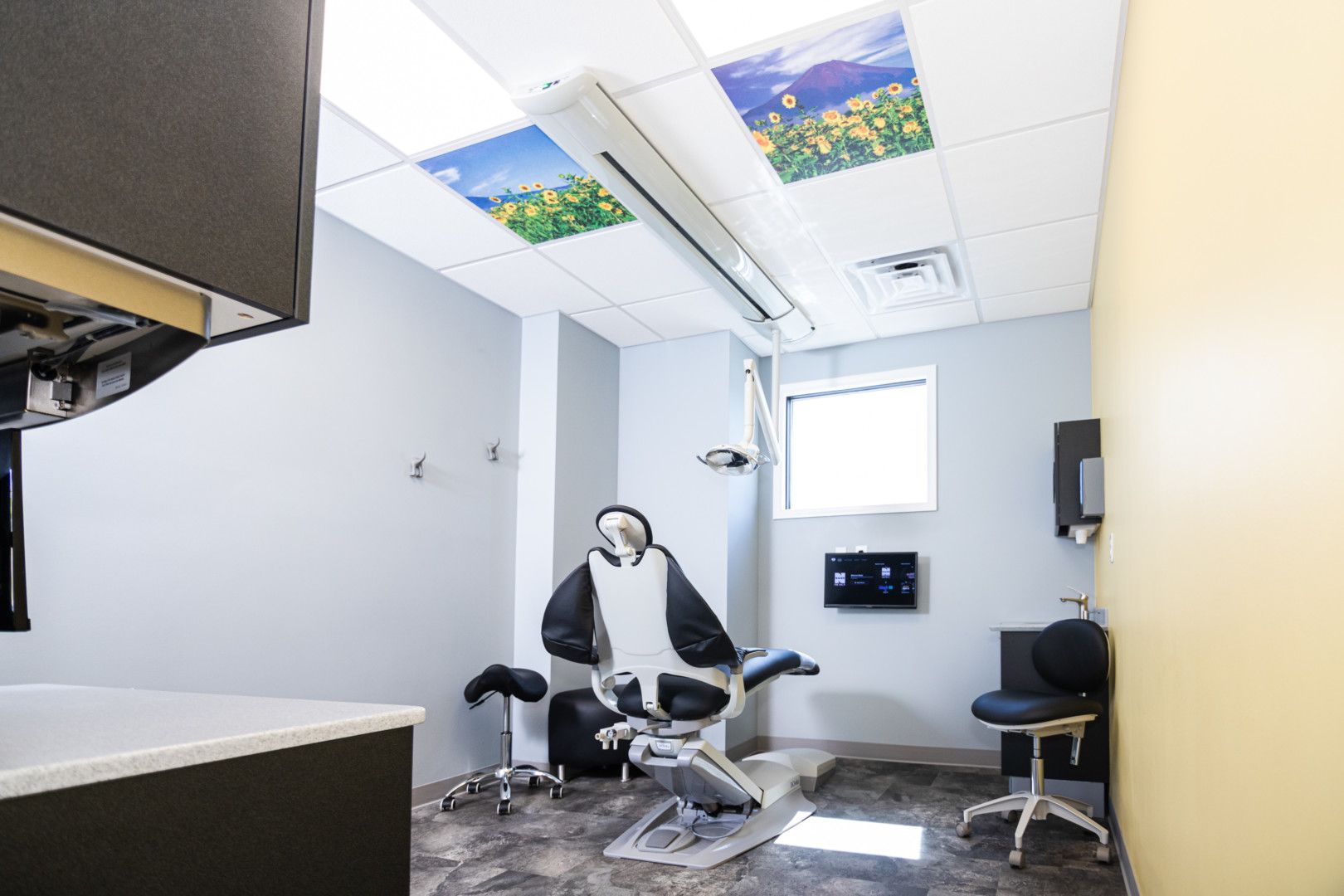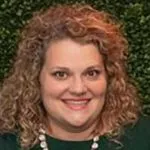With the proper training and planning, a dentist can provide oral health care for special needs patients. But only a person well-versed in overcoming personal obstacles can deliver that care with true empathy.
Dr. Laura B. Holena accomplishes both successfully at Special Care Smiles, her private practice in the mountains of Pennsylvania. The 44-year-old dentist understands perseverance – and the intrinsic value of a doctor who listens.
“There were many times I could have quit along my journey. I was diagnosed with Chiari Malformation while I was in dental school. I left school and had brain surgery. I took some time off and worked as a dental assistant to make sure I still had the dexterity necessary to complete school,” said Dr. Holena, then a student at the University of Buffalo.
“Then, my mother (Helene Holena) passed away unexpectedly during my senior year of dental school. It was very difficult to return to school knowing she would not be able to see me graduate.”
She stayed the course, earning her dental degree in 2008, and returning to her hometown to complete a general practice residency at the VA Medical Center in Wilkes-Barre, Pennsylvania.
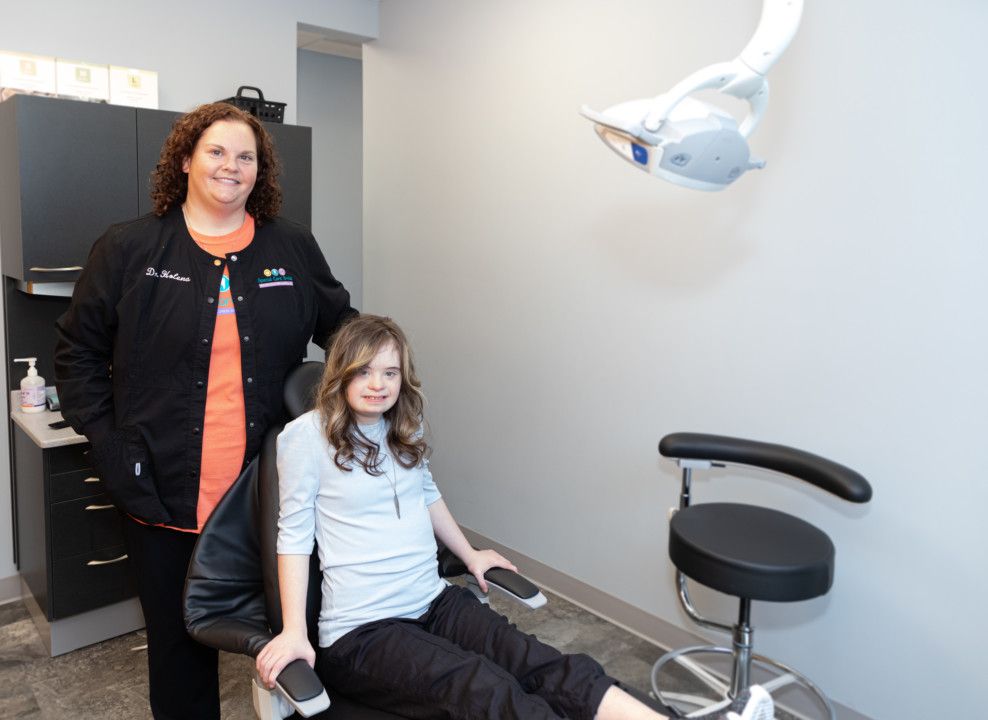
(Photos/Eric Larsen for Incisal Edge) With the proper training and planning, a dentist can provide oral health care for special needs patients. But only a person well-versed in overcoming personal obstacles can deliver that care with true empathy.
Dr. Laura B. Holena accomplishes both successfully at Special Care Smiles, her private practice in the mountains of Pennsylvania. The 44-year-old dentist, shown with patient Leah Amos, understands perseverance – and the intrinsic value of a doctor who listens.
DETERMINED TO DO GOOD DESPITE A CHALLENGING DIAGNOSIS
“Chiari Malformation is not very common, and patients are often misdiagnosed with other conditions first. I fall into this category. At times, it was difficult to get doctors to listen to what I was saying. Having gone through this, I can definitely connect more with my patients. I take time to listen to what patients/parents/caregivers tell me. I understand what it is like to have a chronic illness.”
As a result of Chiari Malformation/Syringomyelia and a subsequent surgery, Dr. Laura Holena faces chronic pain and fatigue on a daily basis. Her workaround: a well-thought out daily routine at Special Care Smiles in Wilkes-Barre, Pennsylvania
“Standing for procedures exacerbates my symptoms, so I have taught myself to do almost all from a seated position. Proper positioning helps to keep symptoms at a minimum, but this is not always possible with the patients I treat.”
In some instances, this presents unique challenges, but Dr. Holena employs safety protocols.
“Nitrous oxide is contraindicated in patients with Chiari, and I commonly treat patients using nitrous oxide. I try to make sure that patients are breathing through their nose so that the Scavenging System works properly,” she references the proper ventilation scenario.
With the Scavenging System, exhaust ventilation of N2O from the patient’s mask should be maintained at an air flow rate of 45 LPM, measured by a calibrated flow device, and vented outdoors — not into the room ventilation system.
Dr. Holena shares knowledge for the greater good as a member of the Board of Directors for Column of Hope, a non-profit organization that funds and supports brain and spinal cord research. Her commitment to patient advocacy and research provides positive results on two levels.
“With my involvement in Column of Hope, I was able to moderate an international research conference that brought together experts in Chiari and syringomyelia from 12 countries. Our fundraising efforts have raised over $1 million and funded over 30 research articles,” said Dr. Holena.
“I am in a unique position as both a patient and a medical provider. I am able to attend medical conferences and contribute to both sides of the conversation. I think it also gives hope to others diagnosed with the condition that you can lead a normal life and not have to give up on your dreams.”
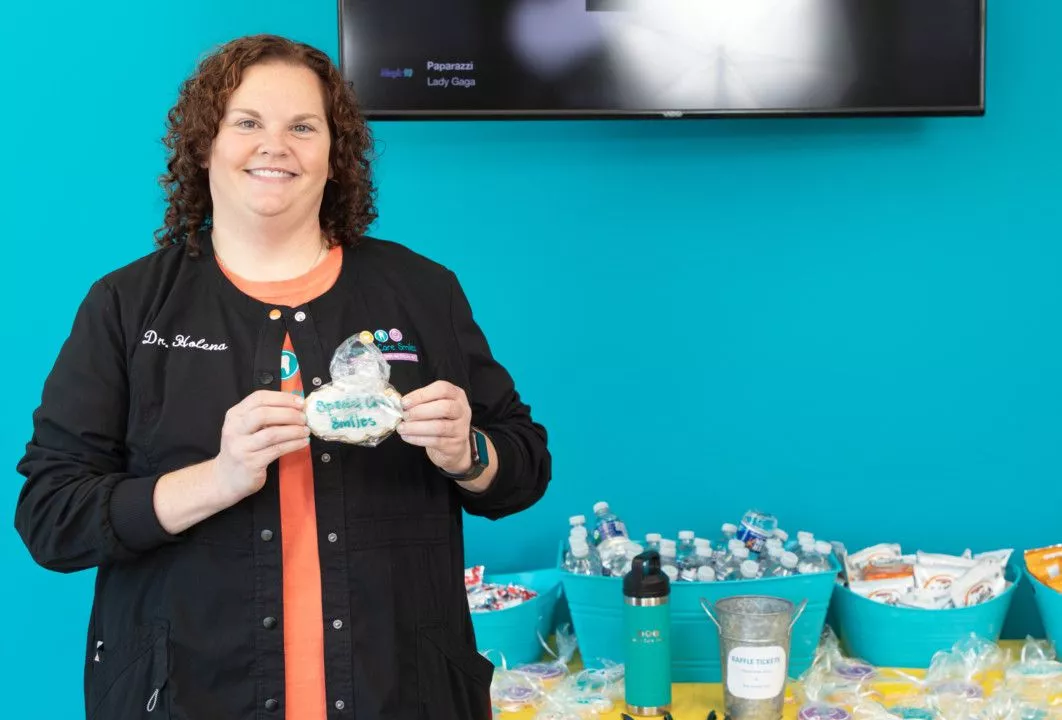
As a result of Chiari Malformation/Syringomyelia and a subsequent surgery, Dr. Laura Holena faces chronic pain and fatigue on a daily basis. Her workaround: a well-thought out daily routine at Special Care Smiles in Wilkes-Barre, Pennsylvania.
ANSWERING A SPECIAL VOCATION
Exposure to the special needs community originated during Dr. Holena’s tenure as a dental assistant at Women and Children’s Hospital in Buffalo, and a commitment to the cause resurfaced in 2009, when she started participating in special needs operating room cases in the spring.
“I was able to gain some operating room experience during dental school. I did a pediatric dentistry minor and was afforded the opportunity to go to the OR several times. Since my residency was hospital-based, I also gained OR experience during that period. During my residency, a local dentist who was retiring approached me and asked if I had any interest in treating special needs patients. He helped me get my privileges at a local surgery center.”
Dr. Holena built on that background to provide optimal treatment for patients in her charge at Special Care Smiles.
“Many of my patients have complex medical histories and are best treated in a hospital setting. Local hospitals do not allow dental cases. I started searching for a place to take my patients and found Lehigh Valley Hospital.”
In conjunction with her hospital privileges, Dr. Holena volunteers as an attending for two residency programs in the Lehigh Valley Health Clinic each month. Residents are invited to participate in her patient treatment at the Network’s 17th Street Hospital and Muhlenberg Hospital.
In another philanthropic role, Dr. Holena dedicates her talents as a member of the Board of Directors with the Special Care Dentistry Association.
“Some of my personal inspirations are the leaders and others members of the Special Care Dentistry Association and the International Association for Disability and Oral Health. They have paved the way for dentists wanting to be involved in caring for special needs patients. They plan annual meetings that provide continuing education and camaraderie amongst colleagues,” said Dr. Holena.
“Most of the board members are in academia, so I am able to contribute based on my private practice experience. Dentists based in academia face different challenges than those in private practice, so we are able to combine our skill sets and experience to advocate for all patients. This year I had the opportunity to be on the Nominations Committee to verify candidates who applied for open board positions. I will also serve as a mentor to the student chapters for the next year and will be help dental students interested in pursuing special needs dentistry.”
EARLY CAREER EXPERIENCES REAFFIRMED HER DENTAL PATH
“I realized the gap in care as soon as I started to treat special needs patients. Over the years, it has become even more apparent. I have had parents start to cry in the office from relief after finally finding a provider to treat their child,” said Dr. Holena.
“I knew I was the right person to treat this population when patients started seeking out my care. You have to want to treat special needs patients, and be kind and patient.”
Though countless exchanges with her patients and their families and caregivers inspire Dr. Holena, a few stand out in her memories.
“The time that I see the patients in my office is only a snippet of their lives. I give so much credit to parents and caregivers who handle their medical conditions and behaviors on a daily basis.”
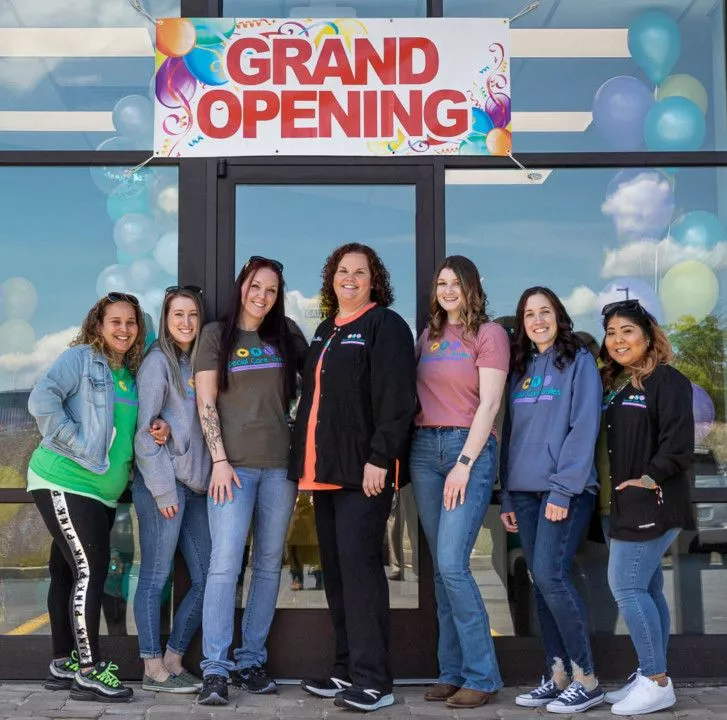
The staff at Special Care Smiles includes, from left, Tai, front desk/assistant, Katie, Expanded Functions Dental Assistant (EFDA), Rachel, RDH/EFDA, Dr. Laura Holena, Sierra, dental assistant, Melissa, RDH and Ana, front desk.
ELIMINATING PAIN, ADDING PURPOSE
Early in her career, Dr. Holena provided operating room treatment for a teenage boy with Down Syndrome.
“I had never seen the patient before and he was not cooperative for radiographs, so I did not have a treatment plan. I was shocked when I took the X-rays and saw that his teeth were non-restorable because of the amount of decay. I left the OR and went to talk to his father, who had brought him to the appointment. When we called his mother to discuss the findings, she was surprised and disappointed, but gave consent to the extractions. At the follow up visit, he was doing great. Mom was still disappointed, but understood, especially seeing the X-rays.
“Since he was now edentulous, I only needed to see him once a year. At his first annual examination, his mother started crying and thanked me. She said the patient was so different. She thinks (before the extractions) he had been in pain and couldn’t communicate it. He started being more affectionate and outgoing — even visiting a local art studio and receiving music lessons.”
STEPS IN THE RIGHT DIRECTION
In another instance, for a patient with Down Syndrome, Dr. Holena and her hygienist slowly rebuilt confidence that had been shattered during a negative dental experience.
“At her previous dentist… she was held down and papoosed because she wasn’t completely cooperative. When she first started coming to me, she would not leave the waiting room. She would sit on the bench closest to the door. I was not able to wear a mask or use any instruments…. Now, back to the operatory, she allows us to wear masks, and use instruments, including the hygiene handpiece. She still won’t sit in the patient chair, but I see that in her near future,” the doctor explains.
AT HOME IN HIS NEW DENTAL HOME
For a twentysomething young man with autism, Dr. Holena’s patience and persistence helped establish a dental home.
“He had never had X-rays or a comprehensive examination. We knew he would need sedation to accomplish this, but he could be very aggressive if approached and we weren’t sure how we would be able to safely sedate him,” she said.
Creating a new level of comfort with the team allowed desensitization and delivered surprising results.
“We scheduled time for him to just walk around during the staff lunch time so there wouldn’t be other patients in the office. He started to get comfortable with the staff and tell us hello. One day, he saw us eating lunch and even joined and helped himself to chips. After several trips, we were able to have him sit in the dental chair and receive the sedation premedication to allow us to safely treat him.”
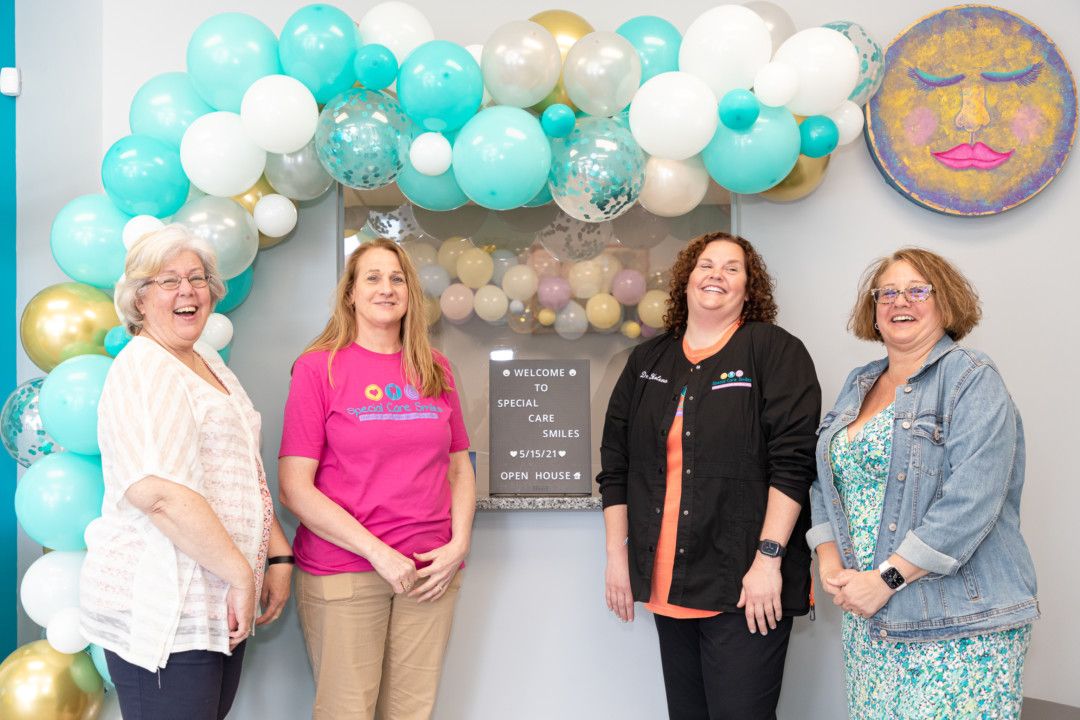
Dr. Laura Holena with her family at the Special Care Smiles Open House event on May 15: sister-in-law Sand’e Holena, sister Karen Dillon, and sister Denise Onderko.
BUILDING A HOME WITH PATIENTS AT ITS HEART
After more than 13 years in practice, Dr. Holena set out to create Special Care Smiles with those in her care as a true North. Their comfort guided every decision for the entire project, right down to the art on the walls, which she purchased in support of an arts apprenticeship that taps into the creative energy of people with special needs located in the neighboring town of Dallas, Pennsylvania.
“My building was a new construction, so I was able to design the entire space to fit the needs of my patients. Elements that we incorporated include wide doorways, wide hallways, comforting colors with bright accent walls, fun décor, and artwork from Verve Vertu studio.
Equipment was also carefully chosen: rear delivery system for handpieces, smaller side cabinets to allow room for wheelchairs/gurneys, underground nitrous hoses, Nomad x-ray system instead of wall-mounted units, cordless hygiene handpieces, mobile procedure carts for specialty procedures, sedation monitoring equipment, fully equipped emergency cart.”
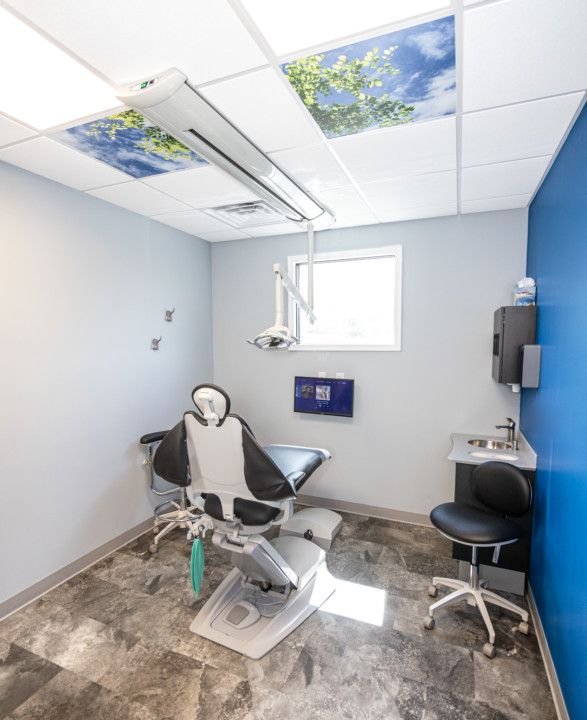
With this essential care as her mission, Dr. Holena was not about to deterred, even by global upheaval.
“The COVID pandemic was the biggest stumbling block. It caused problems with financing, product backorders, and limited construction supplies. When I decided to do a startup practice, there were only two national banks lending for startups. Not only were funding options limited, but the maximum amount of funds being offered was severely capped. The amount banks were willing to lend was $550,000. I had to be creative with the budget in order to equip the practice with what was needed.”
Persistence, determination, and resourcefulness are never in short supply for this doctor, though.
Dr. Holena handpicked her dental team and considers their individual contributions the most vital ingredient to making every patient feel safe and cared for.
“My staff is one of the most valuable assets at Special Care Smiles. They share my commitment and values in the treatment we provide. I would not be successful without them.”
In a setting designed to put them at ease, and with doctor and team whose shared goal is to provide a positive experience, patients know exactly what to expect: a consistent level of care during every visit. Dr. Holena embraces her profession well-equipped to provide it.
“Dentistry is ever-changing, and so are the patients. Technology is constantly evolving,” she said.
“Each patient is different and needs to be treated as an individual. Most of my patients behave differently at each visit, so you always have to be on your game. Knowing I’m making a difference in my patient’s lives keeps me passionate and wanting to do more.”
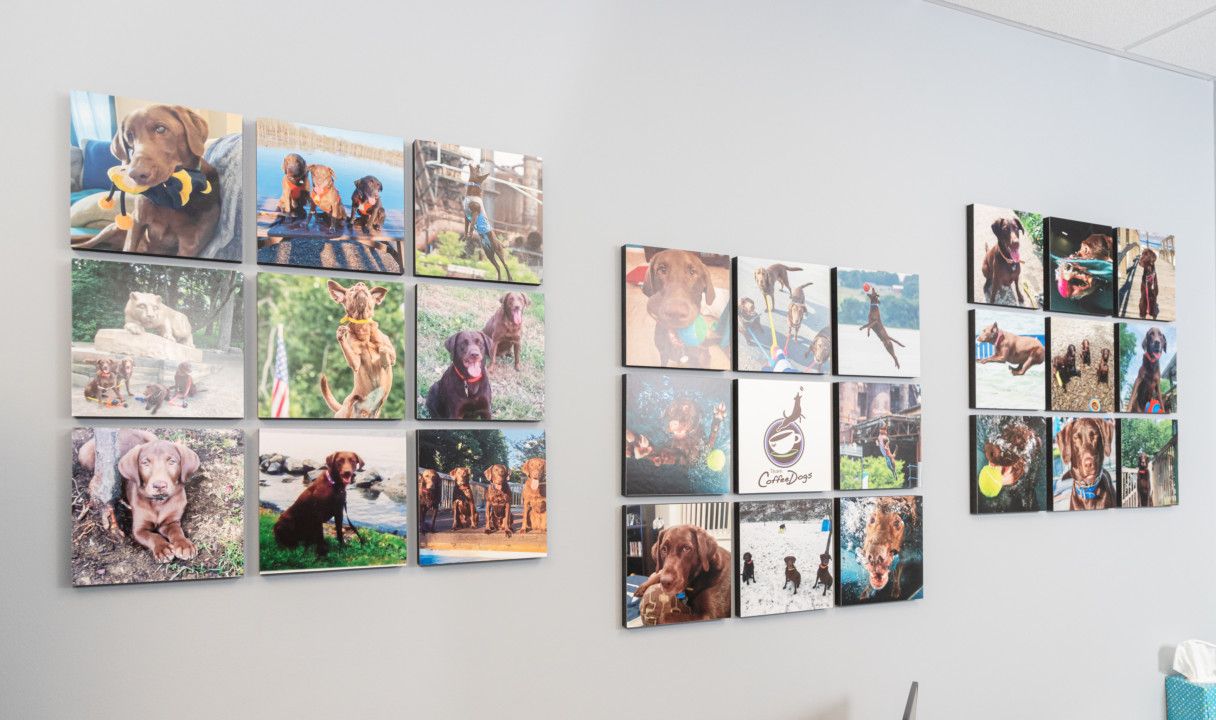
Outside of dentistry, Dr. Laura Holena dedicates time to another passion: her pups. One of Dr. Holena’s dogs was featured in calendars and other merchandise for Underwater Dogs with his “Jazz Paws” picture.
“I currently have four chocolate labs and a deposit on a puppy, to be arriving September 2021. We have been participating in dog sports since 2005 and travel across the United States and Canada. Our current sports are dock jumping, frisbees, and lure coursing and we have also done agility and flyball in the past. In addition to sports, we also do upland pheasant hunting and volunteer with the Pheasants Forever youth program.”



